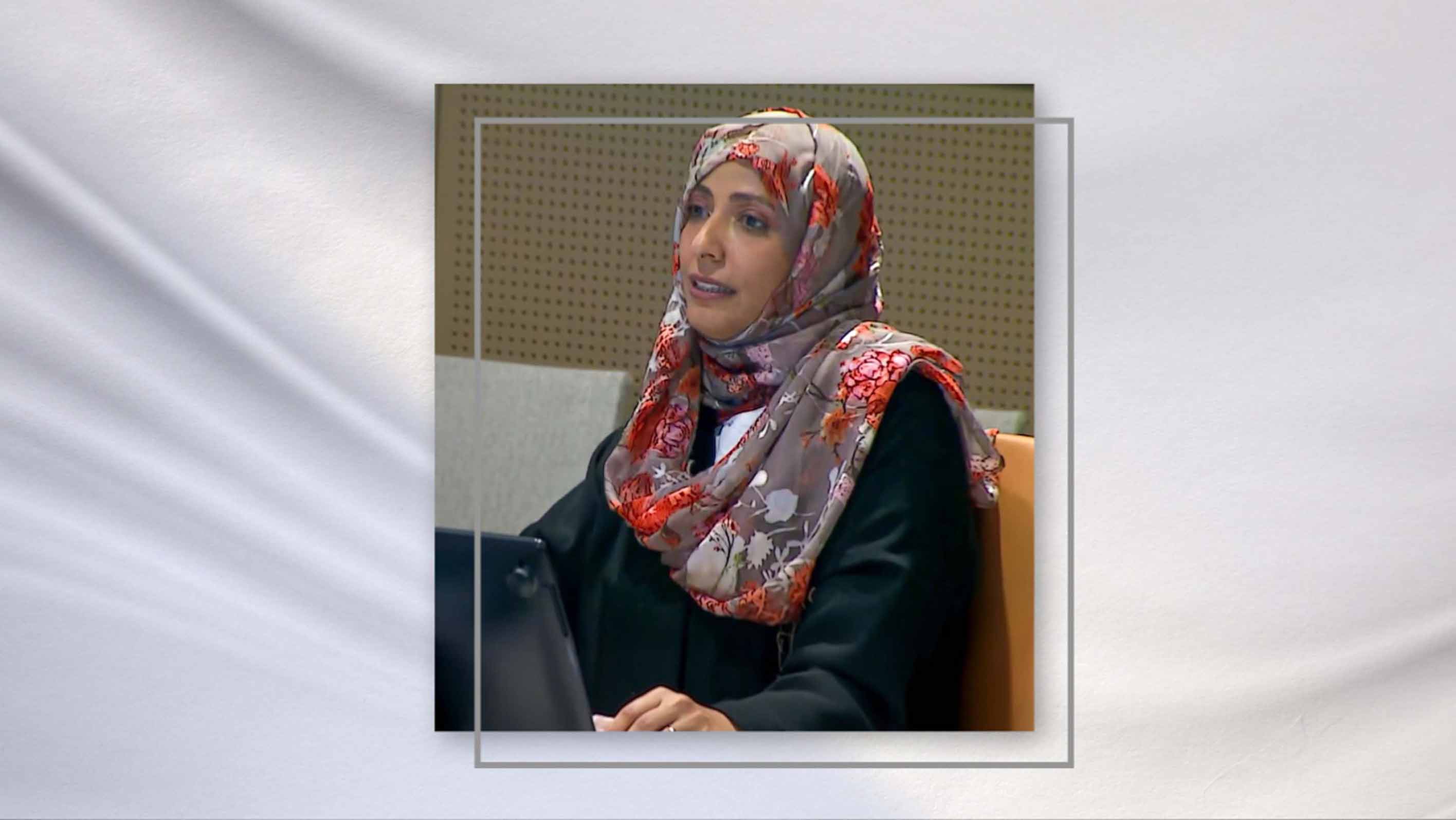
Tawakkol Karman’s contribution in 80th UNGA High-Level Side Event on Social Business, Youth and Technology - New York
Thank you, Mr. President Yunus.
Actually, it's hard to find a title that does him justice, a president or a councilor—yet here, he’s simply called the chief advisor.
He’s my friend, my mentor, and my professor.
I am glad that Yunus and I share a very important prize—the Nobel Peace Prize.
I remember the last time I met Professor Yunus before he became the chief advisor; it was in the Vatican last year.
We were talking about how Nobel laureates and leaders around the world could stand with him in the face of the injustice he was experiencing, and how to protect him from being imprisoned at that time.
And suddenly, everything changed in Bangladesh.
The peaceful revolution won, and our colleague, Mohammed Yunus, became the head of this transitional period.
So I am so proud of him.
I’m so proud of the people of Bangladesh.
I’m so proud of the students of Bangladesh.
I am proud of all of them for many, many things—but the most important is that they proved me right.
Because whenever I defend the Arab Spring and someone asks me, 'Where do you get your hope?' I tell them: from young people.
We shouldn’t lose our hope. We should believe in the future, regardless of the chaos and all the destruction around us.
We have to believe in ourselves, and you will see that one day we will celebrate the total victory of the Arab Spring, and the total victory of people around the world who fight for their freedom, their dignity, their democracy, and their prosperity. And that is what’s happening in Bangladesh.
So thank you—thank you so much to every person in Bangladesh, especially the young people.
This is number one."
Number Two: Let’s talk about the challenges humanity is now facing. We are marking the 80th anniversary of the United Nations—an international institution established for one reason: to stop wars, to stop genocide, to stand with people. Its rightful slogan is “Enough is enough.” It was created to stand with the oppressed, to help people achieve and practice human rights. Now, 80 years after the founding of this great institution—one that reflects our shared humanity—what are the outcomes? What has truly been achieved? Of course, there have been many accomplishments. But wars still exist. Conflicts still exist. Dictatorships still exist—and they have grown stronger. Occupation still exists. Genocide still exists, and we are witnessing it in Palestine.
If we talk about human rights, they are in decline—not in progress. And if we talk about poverty, we haven’t even managed to confront hunger, which continues to afflict millions around the world. What we are witnessing in Gaza is one of the clearest pieces of evidence.
There is a gap between rich countries and poor countries, and a wide gap between rich people and poor people. This should not be the outcome of the United Nations, whose mission is to support development and promote social justice and equality—between nations and among people. So why are we still struggling with poverty? Why are we still talking about how to end it? After 80 years, our future planning must focus on creating real prosperity—not merely on eradicating poverty, but on how to make people live a very dignified life. Yet poverty is still there.
At the same time, the environment is deteriorating, global warming is escalating, and there is no real method in place to stop it. These crises have many causes, but the most important reason is the weakness of the United Nations. It has failed to act with strength and authority. If we truly want to save humanity, we must reform this institution and make it capable of fulfilling its mission.
because of its weakness, it couldn’t fulfill its main mission. It should be a strong institution—one that creates binding decisions and binding agreements for nations, especially in the areas of equality, freedom, human rights, and environmental protection. Unfortunately, the United Nations is really, really, really weak. On this 80th anniversary, we must come together and raise our voices. We need reform in this institution if we truly want to save humanity.
If this institution continues in its weakness, it will not be able to stop wars around the world—and you know what is happening now. We will witness more genocides. More genocide will come, wars will continue, poverty will persist, and climate change—this destruction of our earth—will go on. That’s why we hope this institution will be reformed. We must gather our voices for this cause. And not just the United Nations—all major international institutions need reform. They must become the voice of all nations, and must not ignore any—especially those of the Global South.
"We need these reforms, and we must be brave enough to say it. The veto right—the P5 veto in the Security Council—should be abolished, because it is limited to five countries that have not made human rights their priority. I am here to convey the voice of the people. "I love this institution. I see it as the international government under which all people around the world should be unified. But we must empower it—with tools, with a constitution, with funding, and with binding mechanisms that ensure all member states respect human rights, protect the environment, and uphold economic justice.
We also need to address technology: we must respect people's right to access it, and ensure it is not used as a tool of repression or to control minds. Thank you so much."
